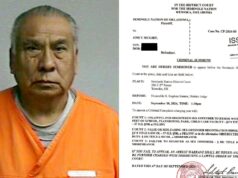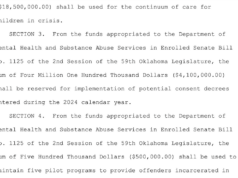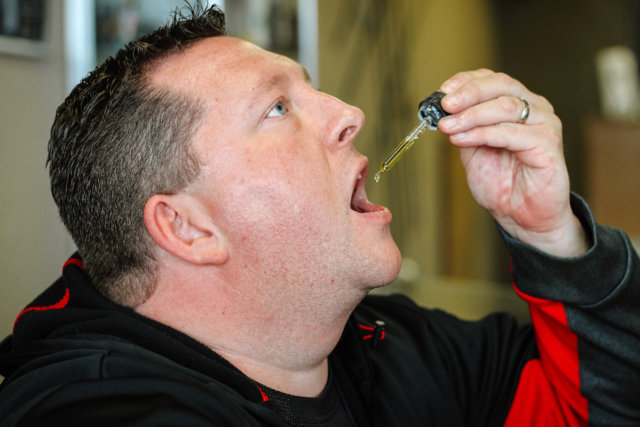
No, this is not another story about Oklahoma’s relationship with the oil and gas industry. A different kind of oil, CBD oil, has become a go-to cure for those looking to eschew traditional pain medications and other treatments. Scientifically known as cannabidiol oil, Katie’s Law legalized CBD oil in Oklahoma in 2015 as a way to allow children with seizures to take it.
Since then, CBD oil in Oklahoma has proven helpful to numerous people on numerous levels. Subsequent expansions of the law have moved from merely allowing clinical trials of CBD in the state to now allowing retail sales of CBD oil products not exceeding 0.03 percent of the THC enzyme that causes the “high” effect in marijuana. The CBD oils extracted from the hemp part of the marijuana plant do not naturally contain THC.
“There’s not one ounce of psychoactive property in CBD,” said Jimmy Shannon, owner of Ambary Health and Vapour Kingdom in Norman, Oklahoma, who came across the remedy by chance.
After a visit to the hospital, Shannon initially suffered from immense pain. Eventually, he also found himself dealing with daily panic attacks that he described as feeling like a heart attack. Shannon was prescribed Xanax, but the symptoms persisted. Meanwhile, he was falling apart physically and mentally.
By happenstance, a friend from Colorado visited a couple of weeks following the worst of the panic attacks. Shannon said his friend just happened to bring some CBD oil with him. It changed Shannon’s life.
“I had known about (CBD oil) my entire life, and I just never thought I would be a candidate for it,” said Shannon, a native Coloradoan.
According to other Oklahoma vendors, the sale of CBD oils has increased exponentially since being legalized. Audrey Murphy of Toppers Tobacco and Novelties in Ada said the CBD market has experienced a marked increase since it was legalized. She estimated over 50 vendors actively sell some form of CBD products in Ada alone.
Emma Denson, owner of House of Health in Ada, said she hasn’t had any complaints about the effects of the CBD oils since she began selling them. Denson mentioned one woman who came in with arthritis and a desire to avoid having to take her pain and arthritis medications. The woman called three days later and said the CBD oil had an immediate positive impact.
“She had just quit all of her pain medicine,” Denson said.
Denson said she had customers who spoke about the benefits of helping with Huntington’s, Parkinson’s and even anxiety, as had been the case with Shannon.
CBD oils are being used for pets as well. Lisa Jensen, owner of Mann’s Best Friend in southwest Oklahoma City, said she has been selling Ambary Health products to her customers. They report nothing but positive results. She said pets that seemed content to live an inactive life had suddenly shown a desire and ability to vigorously move around after being given products containing CBD oil.
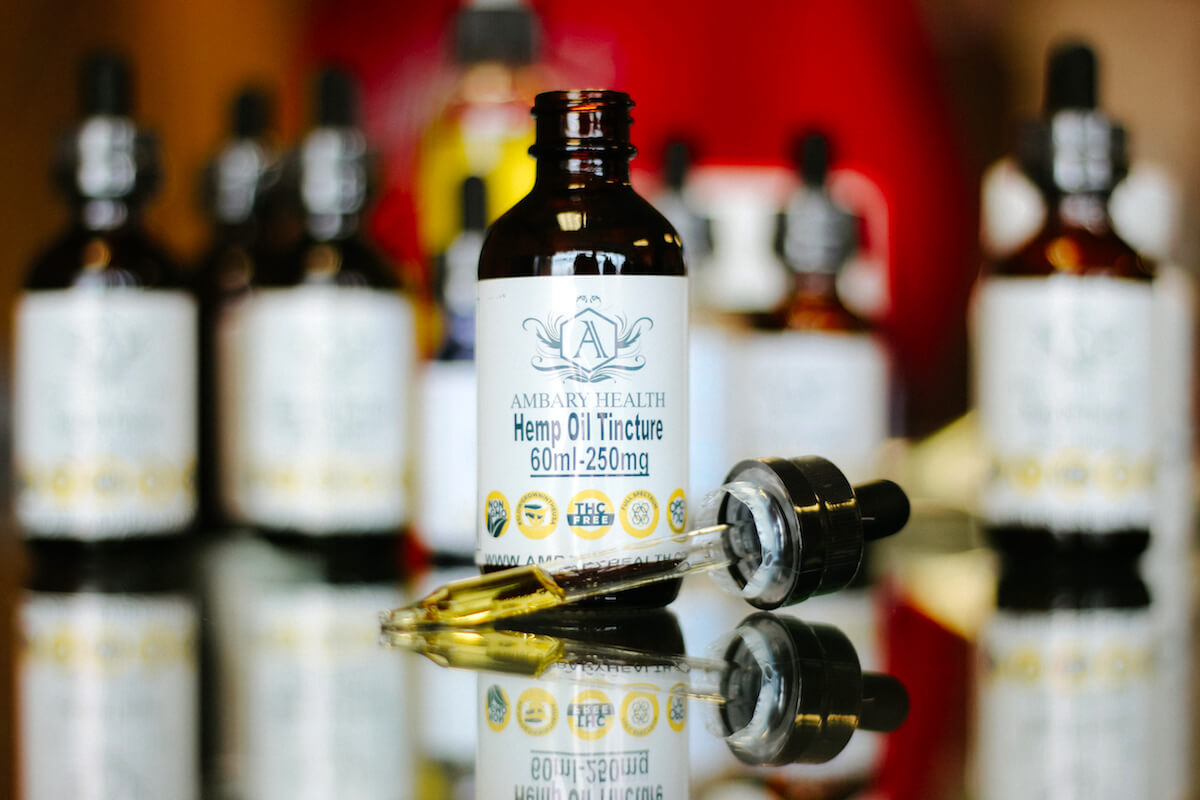
Rep. Echols champions CBD legislation
In addition to being a staunch supporter of the benefits of CBD oil, House Majority Floor Leader Jon Echols (R-OKC) personally sponsored legislation that launched the legalization of the non-psychoactive oils derived from the marijuana plant.
Echols said it has been a tough road considering the way old Oklahoma statutes were written. The lack of an adequate state model to use in crafting the language he wanted also made it difficult to helping Oklahomans in need. Oklahoma was among the first states to legalize the use of CBD oils when Echols initially took on the task in 2015.
“This was me having a conversation with my brother about something that is helpful to my niece,” Echols said.
His niece, Katie Dodson, suffers from Dravet Syndrome, which causes grand mal seizures on a daily basis and whose victims frequently fail to live beyond their 21st birthday. Echols said Katie’s seizures took a physical toll on her body, gradually causing damage to her internal systems. The use of CBD oils, Echols said, has changed her life. He pointed to a recent moment when she was able to say the Pledge of Allegiance as a sign of the immense progress she has made.
Echols said he was encouraged by some families to expand the law to be more inclusive, but other individuals insisted that he allow for less. Echols stood firm that this would not lead to a growth in illegal drug use or an explosion in fly-by-night CBD oil shops popping up on every corner.
“Since we have had this program, there have been no instances of people wanting to abuse this medicine,” Echols said.
Getting past the perception
Much has changed throughout the nation and even (somewhat) in Oklahoma when it comes to people’s perception of marijuana. While many states allow some form of marijuana use or possession, Oklahoma has taken its usual approach of allowing the nation to take the lead.
Even Echols said he has had to fight against a negative perception of CBD oils, frequently explaining to people the difference between the non-psychoactive remedy and medical marijuana.
Meanwhile, Shannon said the government’s longstanding image of marijuana as a dangerous drug could explain Oklahoma’s lingering negative perceptions. Whether it was the visions from 1936’s Reefer Madness film or the nation’s war on drugs, the general opinion on marijuana has been that it was something that could damage not only the person taking it but those around them as well.
“The government has used fear very well,” Shannon said. “We’re fighting a social stigma that people are very much aware of.”
Many of those experiencing the benefits of CBD oil have talked about their desires to quit taking pain meds or other pills associated with their problems. Shannon said it dates back to when people were told all they needed to get rid of pain were a couple of acetaminophen tablets or pills. He said it didn’t necessarily work out that way, and people started getting hooked on meds that could potentially do damage long-term.
“I think Tylenol is a gateway drug,” Shannon said. “I think the public needs a better understanding of what an overdose is and what an overdose comes from. It builds up and the next thing you know, you’re on a transplant list.”
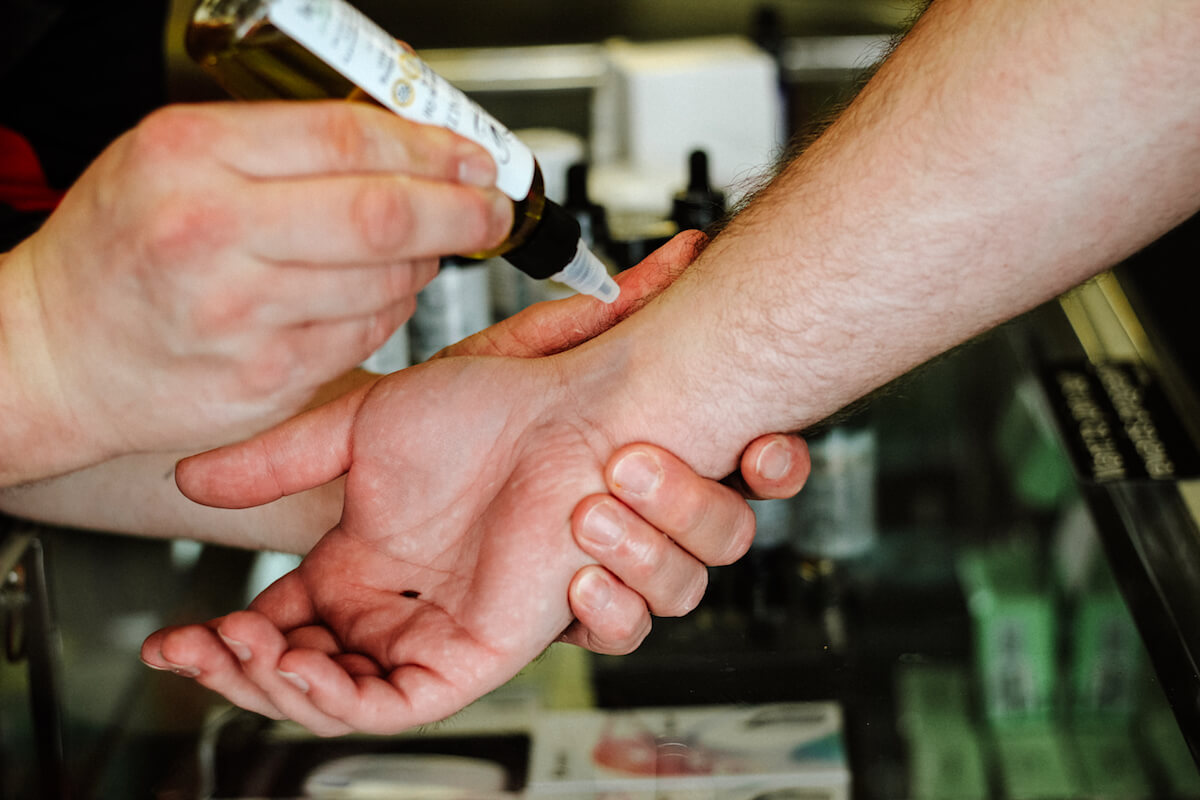
The enforcement side
Mark Woodward, spokesman for the Oklahoma Bureau of Narcotics and Dangerous Drugs, said as long as vendors of the CBD oil products stay at or below the three-tenths of 1 percent level for THC, they should have no problems with the state’s law enforcement agencies. In attempting to enforce the CBD oil laws, Woodward said, as it stands now, the statewide OBN only responds to tips from the public.
“We don’t go looking for (CBD oil violations),” Woodward said. “We’re not looking to go after these companies.”
That hasn’t necessarily been the case with local law enforcement: The Norman Police Department once confiscated $7,500 worth of CBD oil products from Vapour Kingdom. Shannon said he has since worked with NPD in educating them on the differences in CBD oils and marijuana. He said he has had no problems since that raid.
Thus far, the ever-changing landscape of CBD oils has made it a challenge for law enforcement. Woodward said with so many companies in Colorado and other places selling products to a growing number of health stores and vape shops in Oklahoma, it has been difficult to stay on top of what is coming into the state.
“I don’t know how we could even go about beginning to regulate CBD oils,” Woodward said.
What’s next? SQ 788 in 2018
While lawmakers continue to work out the details as to what should and what shouldn’t be allowed in terms of CBD oils, Oklahoma voters will have an opportunity to legalize medical marijuana next year through State Question 788.
Medical marijuana is legal in 29 states, while CBD oil is legal in an additional 15 states. In 2014, Congress prohibited federal agents from raiding medical marijuana growers in states where it is legal to grow.
What will happen in Oklahoma next year is anyone’s guess, but a growing number of voters have become less stigmatized about the effects of marijuana, hemp and derivative products.
“We are just now learning the benefits of what cannabinoids can do for us,” Shannon said.













